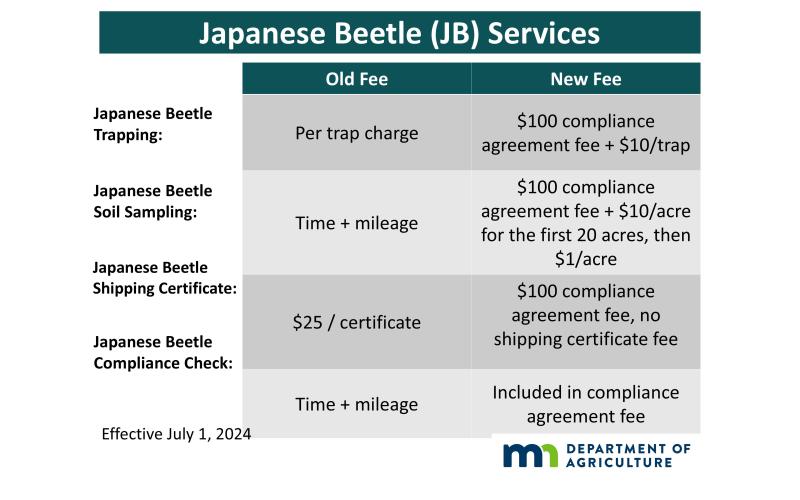Return to Export Certification Program main menu
The mission of the Export Certification Program is to facilitate and expedite movement of Minnesota’s agricultural products into the domestic and international marketplace. Unit staff is responsible for inspecting and certifying agricultural products to ensure they meet the import regulations of the destination state or country. This program cooperates with the USDA, Animal and Plant Health Inspection Service, Plant Protection and Quarantine Program, Export Services, to issue federal documents called phytosanitary certificates for commodities entering foreign countries. Staff also serves as the important first contact for many exporters in their quest to establish a presence in the international marketplace. Trained staff is stationed in East Grand Forks, Bemidji, Menahga, and St. Paul. Under Minnesota Statutes Chapter 18.G (2010), the export program collects and is fully funded by service fees.
What is a Phytosanitary Certificate?
A phytosanitary certificate is an official document that verifies a commodity has been inspected by an authorized official and found to be relatively free of pests and pathogens. The literal definition of “phytosanitary” is plant (phyto) free of elements that endanger health (sanitary).
Certification through this program is only available for raw or minimally processed plant products. For example, we can certify soybeans, but not soy milk. We also cannot certify oils, liquids, or food/feed additives. A good way to evaluate a product is to determine if the commodity has been processed, through heat or additives, such that the risk of plant pests has been eliminated. There are a few exceptions, however, for commodities that have risk of storage pests. We can certify Distillers Dried Grains with solubles (DDGs) and wheat flour, for example.
Products that are further processed, but still carry some risk of pests, such as animal feed with added minerals, can be certified with a processed product certificate. A processed product certificate, while not the same as a phytosanitary certificate, will be sufficient in many cases.
What are Phytosanitary Certificates used for?
A Federal phytosanitary certificate is issued for products that are shipped to other countries. The other country dictates whether a phytosanitary certificate is needed or not. They also stipulate if special conditions must be met before a phytosanitary certificate can be issued. These conditions might include chemical treatment, growing season inspection of parent plants, and/or lab testing for plant diseases. The MDA Export Certification Program will work with you to determine the requirements of your destination country for your product and ensure you meet those requirements.
State phytosanitary certificates are issued for products shipped to other states or U.S. territories that require freedom from plant pests. Typically a state phytosanitary certificate is used when shipping high risk items like live plants, shipping through Canada to Alaska, or when shipping items to Puerto Rico or other U.S. territories. The process, from application to certificate issuance, is exactly the same as a federal phytosanitary certificate.
Other Types of Export Certificates
The Export Certification Program supplies other types of certification for the movement of shipments within the United States, depending on the destination state's requirements. European Corn Borer freedom certification is issued and used mainly for the movement of shelled corn grain to the west coast states where the pest is not yet established. Japanese Beetle certification is issued for plants with growing media and grass sod shipped to states south and west of Minnesota. Japanese beetle is a pest that has caused create problems in eastern states. The Twin Cities Metro has seen a steady increase of Japanese beetles as the range of the bug moves west. You can find additional information regarding export certification for these pests by viewing the pages "Japanese Beetle Certification" and "Services & Fees" in the menu at the top of this page. There is also a link to look up each state's entry requirements for plant products under "External Links."


